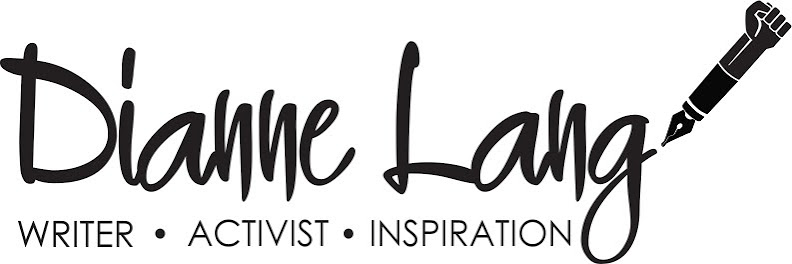Our songs of “kill the boer” and “fokken swartes” are louder than Nkosi Sikelel' iAfrika.
We
all flaunt the words “Capitalism, Communism, Fascism, and Socialism” as though
we know what we are talking about. But
do we? What is the definition of Capitalism,
Communism, Fascism, and Socialism? Are
these concepts taught to the people at political rally’s or conferences? Does the South African population even know
what they are talking about when they say they belong to this or that political
party? Do they even know what the mandate
of their chosen political party is?
“Pay
back the money…give us back our land…nationalise everything… blame it on
apartheid…BEEE…AA…whites that…blacks this…kill the boer…fokken swartes…”are the
calls from all the lunatic fringe groups but they sing the loudest song.
The only way that we can teach these lunatics
is to educate them politically and by teaching them to think for themselves,
instead of blindly following political leaders whose propaganda is merely to
increase their personal love for power and money, irrespective of who they hurt
and damage in the process. The most
obvious problem in South Africa is the inability of the masses to think
rationally and independently. If each
person could be given a chance to negotiate a rational and clearly thought
political or world view, the lunatics and their lunatic leaders would be
silenced. At the very least, knowing
what these terms mean, may assist people in debating politics rationally. Political immaturity provokes emotional
outbursts and race hate in this country.
There
are pitfalls in trying to simplify the definitions of capitalism, socialism,
communism and fascism. These concepts
are complex because they involve not only government, but economics as
well. Another problem is that they are
not mutually exclusive and finally, different times in history, the terms have
been defined differently.
Some
of the terms refer only to economic systems (capitalism) while others refer to
government and economic systems (communism and fascism).
The
United States is a Constitutional Democratic Republic that has long embraced
both capitalism (free markets) and socialism (public schools and universities,
and public works – parks, roads and highways, sewer and water, dams, harbours
and social welfare.
Capitalism is an
economic system in which all or most of the means of production are privately
owned, operated and the investment of capital, production, distribution and
prices are determined mainly by a free market and not by the state. The means of production are operated for profit.
In a purely capitalist economy, there would be no public schools, no state owned or maintained roads and highways, public works, welfare, unemployment insurance, workers compensation or social security.
In a purely capitalist economy, there would be no public schools, no state owned or maintained roads and highways, public works, welfare, unemployment insurance, workers compensation or social security.
Socialism refers to
state ownership of common property or state ownership of the means of
production. In a purely socialist state,
individuals would own nothing, not even their labour.
However, almost all modern capitalist countries combine socialism and capitalism.
However, almost all modern capitalist countries combine socialism and capitalism.
Communism refers to
community ownership of property with the end goal of being complete social
equality via economic equality. It is generally seen by
communist countries as an idealized utopian economic and social state that the
country as a whole is working toward. Such an ideal often justifies means
using means that are authoritarian or totalitarian that is not communist
ideals. Therefore, to attain pure
communism, it necessitates the violation of individual rights over the rights
of the group.
Basically,
communism states that all labour belongs to the individual labourer, no man can
own another man’s body and therefore each man owns his own labour. All profit belongs in part to the labourer
and not those in control of the business or the business owner. Profit that is not shared is fundamentally tyrannical.
Fascism comes from
the Latin word, “fasces”, meaning the bundle of sticks used by the Romans that
symbolized their empire. Hence, Fascism
attempts to return the glory and social organisation of Rome to the land by a
system led by a dictator who has complete power, who forcibly suppresses
opposition, regiments all commerce and highlights aggressive nationalism and
racism. Fascism is almost the complete
opposite to communism because it is opposed to state ownership and economic
equality is not a goal. All actions
should not be motivated by economic motives and democracy is repudiated. Hitler
justified dictatorship and Nazi anti-Semitism on the basis of fighting
communism! The churches also played a
major role in the European fascist countries because they were opposed to the
threat of godless communists.
Capitalism
and socialism refer simply to economic systems. They are amoral systems. Communism and fascism refer to economics,
governance and basic moral principles. They imply a total ideology, a morality
(good or bad morals are dictated), an economy and a government.
Utilitarianism is my preferred political
stance, although it too has its limitations.
Utilitarianism is a theory that holds the course of action must be the
one that maximizes utility for the total benefit of man while reducing
suffering. It is an economic analysis
that is human-centred and based on a moral foundation. Actions are right if they are useful or
benefit the majority of people (irrespective of various classifications). The greatest happiness for the greatest
number should be the guiding principle of conduct. However, the problem with utilitarianism is
that it focuses on the consequences of an action rather than the motive. In addition, it does not adequately compare
the happiness of different individuals and fails to account for the value
placed on justice and equality.
That being said – I am sure that these are not
insurmountable problems. We can blaze
our own path here in South Africa. We do
not need to follow long-dead theorists where the theory did not work in
practice.
Perhaps it is time to re-read Plato’s The Republic.











0 comments:
Post a Comment